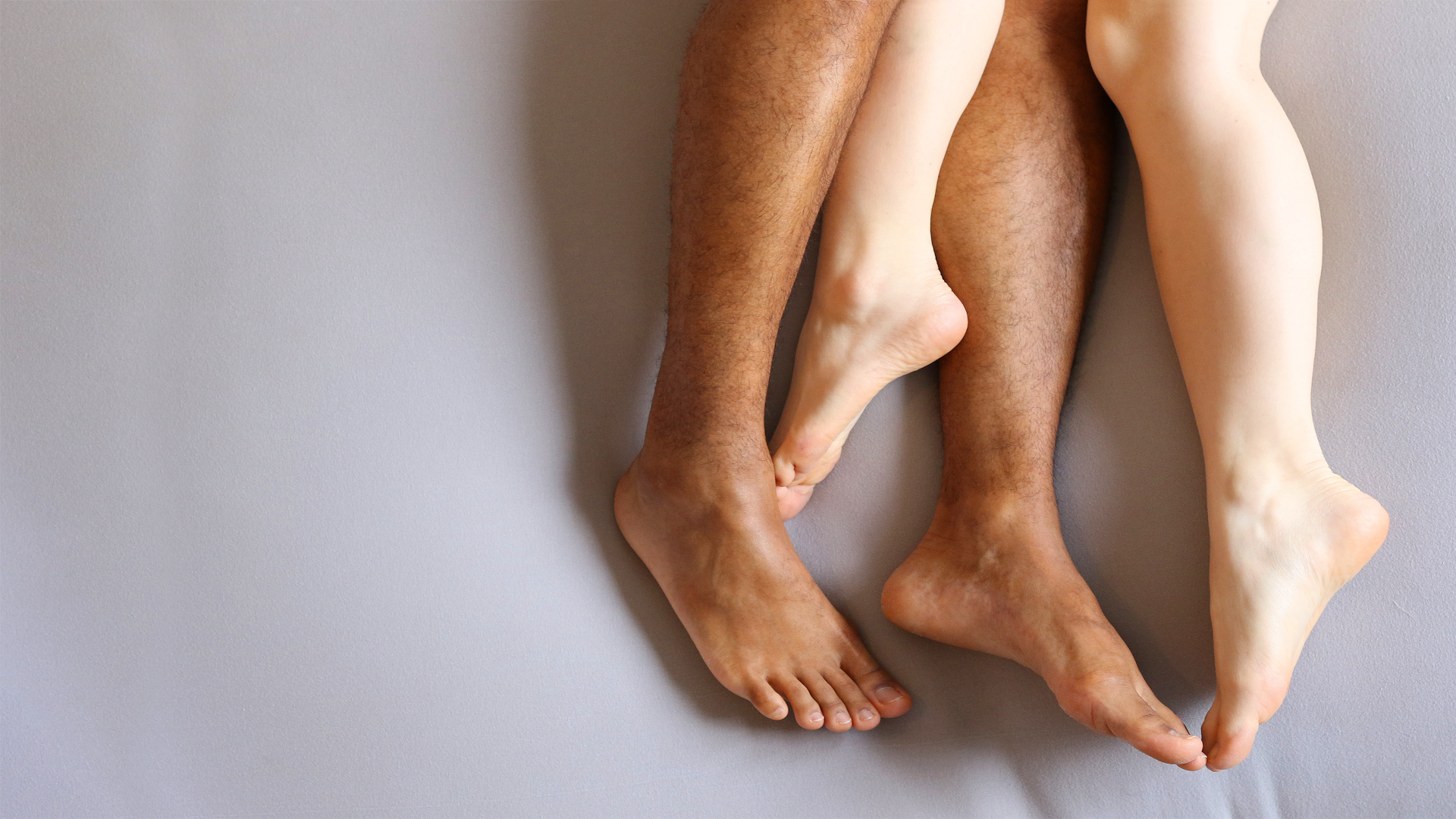As we age, our testosterone levels naturally decline and drop, which can cause many changes to our bodies and minds.
While this may seem like bad news for males who want to maintain their masculinity, there are many ways to fight the effects of low testosterone so that you can remain energized more.
Although a drop in testosterone level with age is natural, for some men, this drop is too severe and causes drastic changes and issues that you need to combat.
While age comes to us all, there are multiple things you can try to boost your testosterone levels as you age.
To help you understand, we’re looking at the part age has to play in the decline of testosterone and how you can alleviate that.
What is testosterone?
Testosterone is just one of the dozens of hormones produced within the body, each with its unique function.
|
Testosterone is a hormone that your testicles secrete. A hormone is a chemical messenger that travels through the bloodstream and regulates the activity of cells and organs. |
Hormones are essential for maintaining homeostasis or balance in the body. Without them, we would be unable to fight off infections, digest food, or reproduce correctly. Thankfully, the body produces the hormones we need to stay healthy and function properly.
For example, the hormone insulin helps to regulate blood sugar levels, while the hormone adrenaline helps to raise heart rate and blood pressure in response to stress.
Testosterone is responsible for developing stereotypical male characteristics, such as a deep, resonant voice and facial hair. Your testosterone levels will peak during your teenage years and early adulthood before gradually declining.
It is also crucial for regulating mood, libido, and bone density. In addition, testosterone plays a vital role in fertility.
However, low testosterone levels can lead to various problems, such as:
- decreased energy levels
- reduced muscle mass
- erectile dysfunction.
For these reasons, it is essential to maintain healthy testosterone levels in the body.
There are several ways to keep your testosterone levels up naturally. Exercise, a healthy diet, and avoiding exposure to harmful chemicals are just some of your options.
By taking steps to maintain healthy testosterone levels, you can enjoy a wide range of benefits for your overall health and well-being.
- Related content: 20 foods that boost testosterone
What causes low testosterone?
Age is the most significant factor affecting your testosterone levels throughout life. From the early 30s onward, male testosterone levels decline, and while it’s not quite as significant as something like menopause, it can have a massive impact.
Although, as well as age, many other elements can also reduce the amount of testosterone in your body. Specific factors that cause low testosterone include:
Poor Diet
One of the primary causes of low testosterone is a poor diet. A diet high in unhealthy fats and low in nutrients can lead to hormonal imbalances that can decrease testosterone levels.
Additionally, a diet that is high in sugar can also lead to lower testosterone levels. Sugar can cause inflammation, producing hormones that can suppress testosterone production.
- Related content: 20 food that helps boost testosterone
Lack of Exercise
Another common cause of low testosterone is a lack of exercise. Exercise helps to improve blood circulation and increase testosterone production.
Furthermore, exercise can help to reduce body fat, which can also lead to higher testosterone levels. So, try to get in a workout regularly. You should aim for an hour of activity daily and focus on strength exercises like weightlifting to boost your testosterone levels.
- Related content: Does weight-lifting increase testosterone in men?
Obesity
Obesity is another major factor that can lead to low testosterone levels. Fat cells produce an enzyme called aromatase, which converts testosterone into estrogen. As a result, men who are obese often have higher levels of estrogen and lower levels of testosterone.
In extreme cases, this estrogen rise can cause female characteristics to form, such as male breasts.
Stress
Stress is another common cause of low testosterone. When stressed, your body will create cortisol, which can harm testosterone production.
Chronic stress can also lead to other health problems that further decrease testosterone levels. It's hard to regulate stress in a challenging environment, but meditation and yoga could help.
Sleep Deprivation
Sleep deprivation is another common cause of low testosterone. Testosterone levels are highest during the early morning hours, so a good night's sleep is essential for maintaining healthy testosterone levels.
Additionally, sleep deprivation can lead to other health problems that can further decrease testosterone levels.
Alcohol Use
Alcohol use can also lead to low testosterone levels. Alcohol consumption can interfere with the production of multiple hormones, including testosterone.
Additionally, alcohol abuse can damage the liver, which is an organ that is responsible for processing hormones in the body.
Smoking
Smoking is another major factor that can lead to low testosterone levels. Cigarette smoke contains toxins that can damage the testicles, the area where testosterone is produced, and interfere with hormone production. Additionally, smoking is linked to an increased risk of developing cancer, which can also lead to reduced hormone levels.
By avoiding these causes, you'll position yourself far better to maintain your testosterone levels as you age.
Age
Of course, as mentioned, one of the most significant factors that drive low testosterone levels is aging. While we can’t stop that - taking care of the other aspects can help keep your testosterone levels elevated so that you don’t experience as many of the side effects.
What are the side effects of low testosterone?
Testosterone is vital in regulating sex drive, bone and muscle mass, and fat distribution.
While many regard testosterone as a male hormone, it is present in both sexes. A low testosterone level with age can lead to various side effects in both men and women; however, this is more pronounced in males.
Common symptoms of low testosterone include:
1. Decreased Libido
One of the most frequent side effects of low testosterone is decreased libido or sex drive.
Testosterone is responsible for causing sexual arousal in men, so a drop in testosterone can reduce sexual desire. Low testosterone can also cause erectile dysfunction, further decreasing libido.
- Related content: How to increase sex drive in men over 40
2. Fatigue and Low Energy
Another common side effect of low testosterone is fatigue and low energy levels. Testosterone plays a role in energy production and metabolism, so a decrease in testosterone can lead to feelings of fatigue.

Additionally, low testosterone can cause difficulty sleeping, which can also contribute to fatigue.
3. Mood Changes
Testosterone affects the production of neurotransmitters, chemicals that play a role in mood regulation.
Low testosterone can cause mood changes, such as irritability, depression, and anxiety. These mood changes are likely due to testosterone's impact on the brain.
4. Muscle Loss
Low testosterone can also cause muscle loss. Testosterone helps to create and maintain muscle mass, so a decrease in testosterone can lead to muscle weakness and atrophy. Additionally, low testosterone can cause osteoporosis, also known as bone loss.
5. Reduced fertility
Finally, low testosterone can reduce fertility. Testosterone is necessary for sperm production, so a decrease in testosterone can lead to reduced sperm count and motility.
In addition, as stated before, low testosterone can also cause erectile dysfunction, further decreasing fertility.
If you are experiencing any of these side effects, it is essential to consult a GP. Moreover, various factors, including age, injury, or certain medical conditions, can cause low testosterone levels.
The good news is that there are proven treatments available that can help to improve your symptoms. With the help of a medical professional, you can find the treatment option that is right for you.
What are the typical levels of testosterone at different ages?
The quantity of testosterone produced by the body varies throughout your lifetime, reaching its highest levels during puberty. After puberty, testosterone production begins to decline gradually.
However, there are significant individual differences in testosterone levels, and some men continue to produce high levels of testosterone well into old age.
|
The normal range for testosterone levels hovers between 300 and 1,000 nanograms per decilitre (ng/dL). |
However, levels above or below this range are still considered normal in some cases. For example, men with deficient testosterone levels may still be able to father children.
Testosterone levels are typically checked when there are concerns about symptoms related to low testosterone, such as decreased sex drive or problems with erections.
If you have any concerns about a low testosterone level with age, talk to your GP. They can help you determine if your levels are within the normal range for your age group or if you may need treatment.
Ways to increase your testosterone level
High testosterone is essential for many men to feel like their best selves.
Testosterone is responsible for several things, including sex drive, muscle mass, and energy levels, so it's clear why many men want to maintain good levels of the hormone.
Fortunately, there are several actions that men can take to increase their testosterone levels, such as:
Getting enough sleep.
One of the most crucial actions you can take to increase your testosterone levels is to ensure you get enough sleep.
Studies have shown that sleep-deprived men have lower testosterone levels than well-rested men. So, aim for 7-8 hours of sleep per night.
Exercise regularly.
Exercise is another excellent way to boost your testosterone levels. Strength training exercises have been shown to increase testosterone levels. So hit the weights and build your muscle mass.
Eat a healthy diet.
Eating a diet rich in healthy fats, proteins, and carbohydrates will help increase your testosterone levels.
In addition, be sure to ingest plenty of fruits, vegetables, and whole grains as part of your weekly diet.
- Related content: Testosterone-killing foods: 8 foods that lower your testosterone
Reduce stress levels.
Chronic stress can lead to low testosterone levels, so finding ways to reduce stress in your life is essential.
Meditation, yoga, and deep breathing are all great ways to manage stress.
Supplement wisely.
Several supplements can help increase testosterone levels, including vitamin D, zinc, and magnesium. Before taking anything, consult your doctor about the supplements which might be right for you.
By following these simple tips, men can keep their testosterone levels high and enjoy the many benefits that come with it.
- Related content: How does Testoprime work (and is it right for you)
Can a high level of testosterone cause problems?
While testosterone is essential for many body functions, including muscle growth and bone density, high testosterone levels can cause problems.
For example, high testosterone levels can lead to acne, increased aggression, and Hirsutism - a condition characterized by excess body hair. In some cases, high testosterone levels may also be linked to fertility problems.
However, it is critical to remember that high testosterone levels are not always harmful. For example, many athletes and bodybuilders have naturally high testosterone levels and experience no adverse side effects.
So, if you are concerned about your testosterone levels, it is best to speak to a doctor who can help you determine whether your levels are healthy.
How do you know if you have low testosterone or not?
One way to know if you have low testosterone is to look at your symptoms. Some common symptoms of low testosterone levels include fatigue, reduced sex drive, depression, and problems with concentration and memory.
Other physical signs include reduced muscle mass and bone density and increased body fat. If you are encountering any or all these symptoms, you must see your doctor for a blood test to ascertain whether you have low testosterone levels.

Various factors, including age, obesity, injuries, medications, and certain chronic health conditions, can cause low testosterone levels.
However, having these symptoms or causes does not always mean that you have low testosterone; they're just cues indicating that you should get a blood test.
You can take an at-home blood test to check levels, or you can visit your Physician. Only once you've completed blood tests and other medical checks will you know if you have low testosterone.
- Related content: The best at-home testosterone kits
Ready to increase your testosterone levels?
Testosterone is a hormone that plays a significant role in the male body. It helps maintain muscle mass, bone density, and sex drive. As you age, your testosterone levels naturally decline.
This change can cause several symptoms, such as decreased muscle mass and strength, low libido, and weight gain.
There are many actionable methods for increasing your testosterone level if it is below average. For example, you can try lifestyle changes such as exercise and diet or buy Testoprime to improve testosterone.
In addition, you can take supplements such as Testoprime to increase testosterone levels, boost energy and keep your sex drive as you age.





